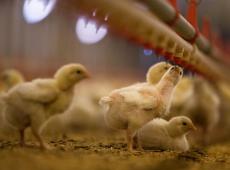Singapore Population Shrink: Economic Impact & Future Projections
By Gurdip Singh, Singapore Sep 23, 2024 06:57
A report highlights Singapore's potential population decline by 2030, impacting the workforce and economy. Experts discuss the implications and potential challenges.
Singapore, Sep 23 (PTI) Singapore could see a shrink in population without immigration in about 10 years, a demographic change which will have far-reaching consequences, including on the size of the city-state's workforce and economic dynamism, a media report said on Monday.
On September 9, Minister in the Prime Minister's Office (PMO) Indranee Rajah said in a reply to a parliamentary question: Based on current trends, the number of citizen deaths could exceed the number of citizen births in the first half of the 2030s.
There were 24,726 citizen deaths in 2023. This was a 40 per cent jump from 17,691 deaths in 2014, The Straits Times newspaper reported.
In contrast, citizen births fell 13 per cent over the same time period. There were 28,877 births in 2023 and 33,193 in 2014, the report said.
Citizen births refer to those of babies who have at least one Singaporean parent, as such babies automatically get Singapore citizenship at birth.
In her reply, Indranee said the projections are meant to illustrate the growth and change in population that could happen if certain demographic assumptions prevail over the projected period. These assumptions may or may not be realised, she added.
Dr Tan Poh Lin, a senior research fellow at the Institute of Policy Studies, said the actual year in which deaths overtake births is not that significant.
More critical is the pace at which the difference between the number of deaths and births continues to grow, as the rapid speed of change in the population and workforce size will make it more difficult for society and the economy to adjust, she was quoted as saying in the report.
The main implications of a shrinking population are that the resident labour force would start to decline, and all economic activity tied to population numbers would also face a stagnant or declining market, said Associate Professor Walter Theseira, a labour economist from the Singapore University of Social Sciences.
He added: Any economic activity catering to the domestic consumption sector, such as our food and beverage and retail, would suffer significant drag from a declining resident population.
Dr Leong Chan-Hoong, head of the Social Cohesion Research Programme at the S. Rajaratnam School of International Studies at Nanyang Technological University, said an older population would also potentially place a heavier tax burden on adults of working age.
Singapore's population stood at 5.92 million as of June 2023, growing 5 per cent from 5.64 million the previous year, the report said.
From June 2022 to June 2023, the citizen population rose by 1.6 per cent to 3.61 million, while the permanent resident population increased by 3.7 per cent to 0.54 million. The non-resident population, which includes foreigners working or studying in Singapore, grew by 13.1 per cent from 1.56 million in June 2022 to 1.77 million in June 2023, according to the Population-In-Brief 2023 report. PTI GS GRS
On September 9, Minister in the Prime Minister's Office (PMO) Indranee Rajah said in a reply to a parliamentary question: Based on current trends, the number of citizen deaths could exceed the number of citizen births in the first half of the 2030s.
There were 24,726 citizen deaths in 2023. This was a 40 per cent jump from 17,691 deaths in 2014, The Straits Times newspaper reported.
In contrast, citizen births fell 13 per cent over the same time period. There were 28,877 births in 2023 and 33,193 in 2014, the report said.
Citizen births refer to those of babies who have at least one Singaporean parent, as such babies automatically get Singapore citizenship at birth.
In her reply, Indranee said the projections are meant to illustrate the growth and change in population that could happen if certain demographic assumptions prevail over the projected period. These assumptions may or may not be realised, she added.
Dr Tan Poh Lin, a senior research fellow at the Institute of Policy Studies, said the actual year in which deaths overtake births is not that significant.
More critical is the pace at which the difference between the number of deaths and births continues to grow, as the rapid speed of change in the population and workforce size will make it more difficult for society and the economy to adjust, she was quoted as saying in the report.
The main implications of a shrinking population are that the resident labour force would start to decline, and all economic activity tied to population numbers would also face a stagnant or declining market, said Associate Professor Walter Theseira, a labour economist from the Singapore University of Social Sciences.
He added: Any economic activity catering to the domestic consumption sector, such as our food and beverage and retail, would suffer significant drag from a declining resident population.
Dr Leong Chan-Hoong, head of the Social Cohesion Research Programme at the S. Rajaratnam School of International Studies at Nanyang Technological University, said an older population would also potentially place a heavier tax burden on adults of working age.
Singapore's population stood at 5.92 million as of June 2023, growing 5 per cent from 5.64 million the previous year, the report said.
From June 2022 to June 2023, the citizen population rose by 1.6 per cent to 3.61 million, while the permanent resident population increased by 3.7 per cent to 0.54 million. The non-resident population, which includes foreigners working or studying in Singapore, grew by 13.1 per cent from 1.56 million in June 2022 to 1.77 million in June 2023, according to the Population-In-Brief 2023 report. PTI GS GRS
Source: PTI
DISCLAIMER - This article is from a syndicated feed. The original source is responsible for accuracy, views & content ownership. Views expressed may not reflect those of rediff.com India Limited.
You May Like To Read
TODAY'S MOST TRADED COMPANIES
- Company Name
- Price
- Volume
- Vodafone Idea L
- 10.41 (+ 0.48)
- 53727067
- GTL Infrastructure
- 2.41 (+ 4.78)
- 49996392
- Five-Star Business F
- 797.20 ( -1.39)
- 47756593
- Spicejet Ltd.
- 61.84 ( -0.87)
- 37121295
- Reliance Power L
- 44.16 (+ 4.99)
- 36538149
MORE NEWS

Gulf Oil Promoter Sells 4% Stake for Rs 263 Crore
Gulf Oil International Mauritius Inc. sold a 4% stake in Gulf Oil Lubricants India for...

Zaggle Acquires Stakes in Span Across IT &...
Fintech firm Zaggle invests Rs 48 crore in Span Across IT Solutions and Mobileware...

Swiggy Files Updated IPO Papers: Eyes Rs 3,750 Cr
Swiggy files updated IPO papers with Sebi, aiming to raise Rs 3,750 crore through fresh...












 © 2024 Rediff.com India Limited. All rights reserved.
© 2024 Rediff.com India Limited. All rights reserved.